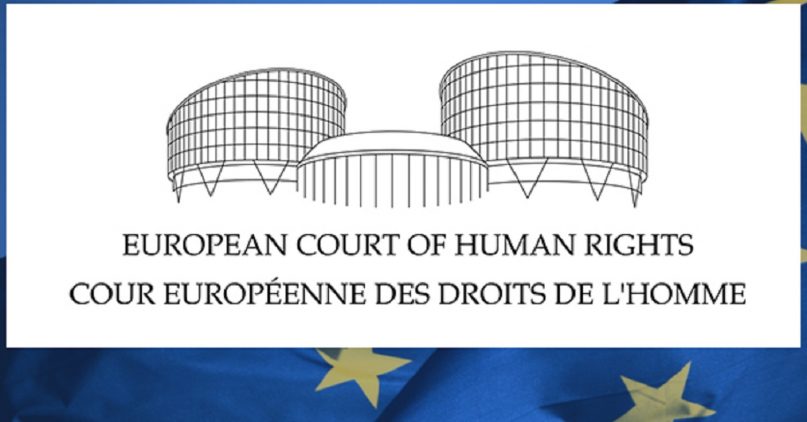
Η απάντηση για το συχνό φαινόμενο της εποχής μας να συλλαμβάνονται δημοσιογράφοι για τις αποκαλύψεις ερευνών, τις ερωτήσεις που θέτουν σε θεσμικά πρόσωπα και την αυστηρή κριτική που ασκούν στους εκάστοτε πολιτικούς παράγοντες , έρχεται από το Ευρωπαϊκό Δικαστήριο Ανθρωπίνων Δικαιωμάτων, το οποίο δίνει το αυτονόητο μήνυμα: Ελευθερία του Τύπου, της Γνώμης και του Εποικοδομητικού διαλόγου στην επίλυση διαφορών ανάμεσα σε Δημοσιογράφους-Αρθρογράφους και Πολιτικούς. Ακολουθεί η είδηση που αφορά στην υπόθεση Παρασκευόπουλου και η απόφαση όπως αυτή εξεδόθη από το ΕΔΔΑ:
“Το Ευρωπαϊκό Δικαστήριο Ανθρωπίνων Δικαιωμάτων καταδίκασε την Ελλάδα στην υπόθεση Paraskevopoulos v. Greece (αρ. 64184/11) για παραβίαση του άρθρου 10 της ΕΣΔΑ που αφορά στο δικαίωμα της ελευθερίας της έκφρασης. Σύμφωνα με το ιστορικό της υπόθεσης, ο προσφεύγων, κάτοικος Θεσσαλονίκης, έγραψε ένα άρθρο σε μια εφημερίδα, το Δεκέμβριο του 2007, στο οποίο κατηγορούσε ορισμένα πρόσωπα που είχαν εμπλακεί στην πολιτική κάνοντας κατάχρηση της θέσης τους, μεταξύ άλλων, καταπατώντας δημόσια περιουσία παρακείμενη στην ιδιοκτησία τους φυτεύοντας δέντρα και κατασκευάζοντας κιόσκι που παραβίαζε το δημόσιο χώρο. Ο πρόεδρος του δημοτικού συμβουλίου του έκανε μήνυση για δυσφήμιση.
Τον Ιούλιο του 2010, το Εφετείο έκρινε ότι ήταν σαφές από το άρθρο του προσφεύγοντος ότι αυτός αναφερόταν στον πρόεδρο του δημοτικού συμβουλίου, και τον έκρινε ένοχο για προσβολή μέσω του Τύπου με ποινή 2μηνη φυλάκιση με αναστολή.
Τα εθνικά δικαστήρια απέρριψαν το επιχείρημά του ότι είχε θέσει ένα θέμα δημοσίου συμφέροντος που ήταν επίσης αλήθεια. Ειδικότερα, το εφετείο διαπίστωσε ότι, αν και τα γεγονότα που αναφέρονταν στο άρθρο ήταν ακριβή, ο τρόπος που τα είχε εκφράσει ο προσφεύγων ήταν προσβλητικός.
Ο πρόεδρος του δημοτικού συμβουλίου τον ενήγαγε επίσης ζητώντας αποζημίωση για ηθική βλάβη και τον Ιούλιο του 2014 του επιδικάστηκαν 2.500 ευρώ.
Επικαλούμενος το άρθρο 10 (ελευθερία έκφρασης), ο προσφεύγων διαμαρτυρήθηκε ότι η ποινική καταδίκη του για τα σχόλια τουσχετικά με έναν πολιτικό της τοπικής αυτοδιοίκησης που δημοσιεύθηκε σε άρθρο του σε τοπική εφημερίδα, είχε παραβιάσει το δικαίωμά του στην ελευθερία έκφρασης.
Το ΕΔΔΑ με την απόφασή του της 28ης Ιουνίου 2018, δέχτηκε ότι εν προκειμένω παραβιάστηκε το δικαίωμα στην ελεύθερη έκφραση. Όπως αναφέρει στην απόφασή του, ο αιτών χρησιμοποίησε όντως ένα υποτιμητικό στυλ και οι διατυπώσεις του υποδήλωναν ότι πρόθεση του ήταν να δυσφημιστεί ο πρόεδρος του τοπικού συμβουλίου. Εντούτοις, δεδομένου του πραγματικού πλαισίου και του αντικειμένου της κριτικής, η οποία συνδέεται με το δημόσιο αξίωμα του εν λόγω πολιτικού, το Δικαστήριο συμμερίστηκε την άποψη ότι στην προκειμένη περίπτωση ο συγγραφέας του άρθρου δεν υπερέβη τα όρια της αποδεκτής κριτικής, λαμβανομένου υπόψη μάλιστα ότι είχε διαπιστωθεί ότι οι ισχυρισμοί του προσφεύγοντος στο άρθρο του περί καταχρήσεως δημόσιας θέσης είχαν επαρκή πραγματική βάση.
Το ΕΔΔΑ επιδίκασε στον αιτούντα 7,000 ευρώ (μη χρηματική ζημία) και 5,655 ευρώ (έξοδα). (legalnews24.gr/echr)
Δείτε το πλήρες κείμενο της απόφασης εδώ το οποίο και ακολουθεί :

FIRST SECTION
CASE OF PARASKEVOPOULOS v. GREECE
(Application no. 64184/11)
JUDGMENT
STRASBOURG
28 June 2018
This judgment will become final in the circumstances set out in Article 44 § 2 of the Convention. It may be subject to editorial revision.
In the case of Paraskevopoulos v. Greece,
The European Court of Human Rights (First Section), sitting as a Chamber composed of:
Kristina Pardalos, President,
Linos-Alexandre Sicilianos,
Krzysztof Wojtyczek,
Ksenija Turković,
Armen Harutyunyan,
Pauliine Koskelo,
Jovan Ilievski, judges,
and Renata Degener, Deputy Section Registrar,
Having deliberated in private on 29 May 2018,
Delivers the following judgment, which was adopted on that date:
PROCEDURE
1. The case originated in an application (no. 64184/11) against the Hellenic Republic lodged with the Court under Article 34 of the Convention for the Protection of Human Rights and Fundamental Freedoms (“the Convention”) by a Greek national, Mr Panagiotis Paraskevopoulos (“the applicant”), on 23 September 2011.
2. The applicant was represented by Mr A. Zachariadis, a lawyer practising in Thessaloniki. The Greek Government (“the Government”) were represented by their Agent’s delegate, Ms A. Dimitrakopoulou, Senior Advisor at the State Legal Council.
3. The applicant alleged that his criminal conviction for insult on account of an article he had published in a local newspaper had violated his freedom of expression.
4. On 26 April 2017 the application was communicated to the Government.
THE FACTS
I. THE CIRCUMSTANCES OF THE CASE
5. The applicant was born in 1964 and lives in Thessaloniki. He is a taxi driver by profession.
6. In December 2007 the applicant published an article in a local newspaper, Chortiatis 570. The article’s title was “The ludicrousness of power” and stated, inter alia, the following:
“It is known to more or less all of us how some people, fellow citizens or neighbours, especially the latter, act when they think that interests of any kind which they have had ‘since the beginning of time’ are affected … when these same people get involved in politics and take up a little post, owing to there being a lack of other interested people who are all too often more capable. Because those people will serve petty political – but mostly their own personal – interests much more readily in order to impose themselves more easily than others, others whose vote they wormed out by making many promises … Those are the totally (un)worthy, squeaky clean people in proper clothes every Sunday … Those who, when placed in paid positions in charge of local executive bodies, and especially in the local municipality of Filyro, are the same people who consider that their land has suddenly become bigger, and claim a little of the public space between their land and the street. In this space, which they consider to belong to their yard, they plant trees, as if they suddenly have a mania for saving the environment … they construct their buildings (in our case, a gazebo with a tiled roof) a little further from the limits of their land, saying with impudence that it is not they who are to blame for this, but ‘the bad Albanian’ to whom they assigned [the building work]. So, in order to hinder any ‘reckless’ neighbours or other visitors who [have] the audacity to park their cars in the area between the limits of their land and the street, that is to say in the remaining public space, they put TREES-OBSTACLES. Because they care about any accidents that may happen – not, of course, owing to someone’s choosing to walk or park his or her car there, but owing to the fact that the height of this construction, which accidently (as they claim) juts out of their land, is such that any unsuspecting person runs the risk of getting head injuries when he or she steps out of his or her car … As they are bailiffs, like spies, they also find out the names of the people who come into the PAVLIDIS area in PHILYRO in order to work, from the number plates of the cars. [These people] find themselves faced with criminal complaints, because they dare to park where all the others park …”
7. The head of the local council, E.P., filed a criminal complaint against the applicant for slanderous defamation via the press.
8. On 24 September 2008 the three-member first-instance criminal court of Thessaloniki (Τριμελές Πλημμελειοδικείο) held a hearing in the case. The applicant argued that, under Article 367 of the Criminal Code, his act had not been wrongful, as what he had written in the published text was true. Furthermore, relying on Article 367 § 1 of the Criminal Code, he argued that he had written this with a legitimate interest in the case, which was his belief that E.P. had used her position as an elected member of the local council in order to plant trees and construct a pavement in front of her house without permission. The court held that the complainant could be identified from the content of the article, and found the applicant guilty of slanderous defamation via the press. It sentenced him to a six-month suspended prison sentence (decision no. 6484/2008). The applicant appealed against that decision.
9. On 28 May 2009 the three-member Thessaloniki Court of Appeal (Τριμελές Εφετείο – hereinafter “the Court of Appeal”) changed the charges from slanderous defamation to insult (εξύβριση), and found the applicant guilty of insult via the press. It sentenced him to a four-month suspended prison sentence (decision no. 2830/2009). The applicant appealed on points of law on grounds including, inter alia, a lack of sufficient reasoning as to the rejection of his argument under Article 367 of the Criminal Code, which he had repeated in the Court of Appeal.
10. On 5 May 2010 the Court of Cassation (Άρειος Πάγος) quashed the judgment which had been appealed against, on the grounds of a lack of reasoning, and remitted the case to the Court of Appeal (decision no. 905/2010).
11. On 13 July 2010 the Court of Appeal held a new hearing in the case. The applicant argued again that his act had not been wrongful, as what he had written in the published article was true, and he had written with a legitimate interest in the matter. The Appeal Court rejected the applicant’s argument and held the following:
“… Considering the above-mentioned content of the article and the then ongoing dispute between the parties and especially their personal confrontation at the City Council, it is at the outset clear and without a doubt that the references (facts and characterisations) solely and exclusively concern the complainant. Furthermore, from the impugned article it is apparent that in it the following facts are included: that the complainant 1) had built a gazebo with a tiled roof on her land and that a part of the roof jutted out onto the street; 2) had built a pavement and had planted trees in a public space; 3) threatened to sue persons (who were proven to be the drivers of the defendant) who dared to park in a place where other residents also parked their cars. It is also apparent that these facts are accompanied by adverse judgments against her and that those facts are connected to her in her capacity as head of the local council, that is to say that her above-mentioned actions had taken place arbitrarily and in abuse of her position at Chortiatis Municipality. It was proved that the above-mentioned facts which the defendant disseminated to others via the local press were true, as the complainant admitted … It was also proved that a) the above-mentioned facts that the defendant disseminated in the above-mentioned way could harm, seen objectively, the honour and reputation of the complainant, also in view of her aforementioned capacity in conjunction with the fact that the dissemination took place via the local press and became known to an indefinite number of people; b) the defendant knew that the disseminated facts were capable of harming the honour or reputation of the complainant, and c) the defendant wanted to make such a dissemination harming her honour and reputation. It follows that, in the present case, the above-mentioned elements objectively and subjectively constitute the criminal act of simple defamation (Article 362 of the Criminal Code) which, however, goes without punishment, under Article 366 § 1 (a) of the Criminal Code. Nevertheless, taking into account the way the above-mentioned defamation was expressed, and in the circumstances which were previously detailed, the court concludes that there was an intention to insult, and for this reason the defendant must be punished for this act. In particular, the court bases its conclusion on the fact that the applicant presented the above-mentioned true facts along with unacceptable value judgments and references to the complainant’s public post, such as, ‘Because those people will serve petty political – but mostly their own personal – interests much more readily in order to impose themselves more easily than others, others whose vote they wormed out by making many promises’, and unfamiliar characterisations such as, ‘Those are the totally (un)worthy, squeaky clean people in proper clothes every Sunday’, or, ‘As they are bailiffs, like spies, they also find out the names of the people from the number plates of the cars’. Lastly, the defendant’s separate argument that he committed this act with a legitimate interest must be dismissed as unfounded, as the above-mentioned expressions included in the article ‘The ludicrousness of power’, which the defendant published in the newspaper Chortiatis 570, indicate that he intended to insult the complainant. These phrases were not necessary in this case for the expression of the defendant’s desire to protect the legitimate interest upon which he relied, and he could have used other phrases such as: ‘they try to serve their [own] personal interests’ instead of, ‘Because those people will serve petty political – but mostly their own personal – interests much more readily in order to impose themselves more easily than others, others whose vote they wormed out by making many promises’; or the phrase, ‘the elected public persons’ instead of, ‘Those are the totally (un)worthy, squeaky clean people in proper clothes every Sunday’; as well as the expression, ‘as bailiffs, they know how to find other people’s data’, instead of, ‘As they are bailiffs, like spies, they also find out the names of the people from the number plates of the cars’ …”
12. Based on the above, the Court of Appeal found the applicant guilty of insult via the press and sentenced him to a two-month suspended prison sentence (judgment no. 2712/2010). The applicant appealed on points of law.
13. On 23 February 2011 the Court of Cassation dismissed the applicant’s appeal on points of law (decision no. 351/2011). The court held that the judgment of the Court of Appeal had included sufficient reasoning. In addition, it had been correct to dismiss the applicant’s argument that he had acted with a legitimate interest as it had held that the applicant had intended to insult E.P and that he had used expressions which had not been necessary for defending his alleged legitimate interest, adding at the same time which expressions could have been used instead. The decision was finalised (καθαρογραφή) on 24 March 2011.
14. In addition, in 2008 E.P. lodged a civil action for damages against the applicant. The Thessaloniki multi-member First-Instance Court by its judgment no. 697/2011 ordered the applicant to pay 5,000 euros (EUR) to E.P. Following the applicant’s appeal, the Thessaloniki Court of Appeal ordered the applicant to pay EUR 2,500 (judgment no. 119/2014). The judgment became final and the applicant paid to E.P. EUR 2,500 and EUR 1,913.77 in interest.
II. RELEVANT DOMESTIC LAW AND PRACTICE
15. The relevant provisions of the Criminal Code read:
Article 361
Insult
“1. Except in cases which amount to defamation (Articles 362 and 363), anyone who by words or by deeds or by any other means injures another’s reputation shall be punished by up to one year’s imprisonment, or by a pecuniary penalty. The pecuniary penalty may be imposed in addition to imprisonment.
2. If the injury to reputation is not severe, considering the circumstances and the person injured, the offender shall be punished by imprisonment or a fine.
3. The provision of paragraph 3 of Article 308 shall apply in this case.”
Article 362
Defamation
“Anyone who by any means disseminates information to a third party concerning another which may harm the latter’s honour or reputation shall be punished by up to two years’ imprisonment or a pecuniary penalty. The pecuniary penalty may be imposed in addition to imprisonment.”
Article 363
Slanderous defamation
“If, in a case under Article 362, the information is false and the offender was aware of the falsity thereof, he shall be punished by at least three months’ imprisonment, and, in addition, a pecuniary penalty may be imposed and deprivation of civil rights under Article 63 may be ordered.”
Article 366
“1. If the fact of Article 362 is true, then the act stays unpunished …”
Article 367
“1. The following cannot be considered wrongful acts: … c) [statements or actions] for the performance of one’s legal duty, the exercise of legal power, or the preservation (protection) of a right, or due to another legitimate interest or d) similar cases.
2. The preceding provision does not apply: a) when the above-mentioned adverse judgments and [statements or actions] have the elements of the act under Article 363, and b) when, from the manner of [the statement or action] or the circumstances in which the act was committed, it follows that there was an intention to insult.”
III. INTERNATIONAL LAW
16. On 4 October 2007 the Parliamentary Assembly of the Council of Europe adopted Resolution 1577 (2007), entitled “Towards decriminalisation of defamation”. Its relevant passages read as follows:
“…
6. Anti-defamation laws pursue the legitimate aim of protecting the reputation and rights of others. The Assembly nonetheless urges member states to apply these laws with the utmost restraint since they can seriously infringe freedom of expression. For this reason, the Assembly insists that there be procedural safeguards enabling anyone charged with defamation to substantiate their statements in order to absolve themselves of possible criminal responsibility.
7. In addition, statements or allegations which are made in the public interest, even if they prove to be inaccurate, should not be punishable provided that they were made without knowledge of their inaccuracy, without intention to cause harm, and their truthfulness was checked with proper diligence.
8. The Assembly deplores the fact that in a number of member states prosecution for defamation is misused in what could be seen as attempts by the authorities to silence media criticism. Such abuse – leading to a genuine media self-censorship and causing progressive shrinkage of democratic debate and of the circulation of general information – has been denounced by civil society, notably in Albania, Azerbaijan and the Russian Federation.
…
12. Every case of imprisonment of a media professional is an unacceptable hindrance to freedom of expression and entails that, despite the fact that their work is in the public interest, journalists have a sword of Damocles hanging over them. The whole of society suffers the consequences when journalists are gagged by pressure of this kind.
13. The Assembly consequently takes the view that prison sentences for defamation should be abolished without further delay. In particular it exhorts states whose laws still provide for prison sentences – although prison sentences are not actually imposed – to abolish them without delay so as not to give any excuse, however unjustified, to those countries which continue to impose them, thus provoking a corrosion of fundamental freedoms.
14. The Assembly likewise condemns abusive recourse to unreasonably large awards for damages and interest in defamation cases and points out that a compensation award of a disproportionate amount may also contravene Article 10 of the European Convention on Human Rights.
…
17. The Assembly accordingly calls on the member states to:
17.1. abolish prison sentences for defamation without delay;
17.2. guarantee that there is no misuse of criminal prosecutions for defamation and safeguard the independence of prosecutors in these cases;
17.3. define the concept of defamation more precisely in their legislation so as to avoid an arbitrary application of the law and to ensure that civil law provides effective protection of the dignity of persons affected by defamation;
…
17.5. make only incitement to violence, hate speech and promotion of negationism punishable by imprisonment;
17.6. remove from their defamation legislation any increased protection for public figures, in accordance with the Court’s case law, and in particular calls on:
…
17.7. ensure that under their legislation persons pursued for defamation have appropriate means of defending themselves, in particular means based on establishing the truth of their assertions and on the general interest, and calls in particular on France to amend or repeal Article 35 of its law of 29 July 1881 which provides for unjustified exceptions preventing the defendant from establishing the truth of the alleged defamation;
17.8. set reasonable and proportionate maxima for awards for damages and interest in defamation cases so that the viability of a defendant media organ is not placed at risk;
17.9. provide appropriate legal guarantees against awards for damages and interest that are disproportionate to the actual injury;”
THE LAW
I. ALLEGED VIOLATION OF ARTICLE 10 OF THE CONVENTION
17. The applicant complained that his criminal conviction on account of his remarks concerning a local politician included in an article published in a local newspaper had violated his right to freedom of expression. He relied on Article 10 of the Convention, which reads as follows:
“1. Everyone has the right to freedom of expression. This right shall include freedom to hold opinions and to receive and impart information and ideas without interference by public authority and regardless of frontiers. This Article shall not prevent States from requiring the licensing of broadcasting, television or cinema enterprises.
2. The exercise of these freedoms, since it carries with it duties and responsibilities, may be subject to such formalities, conditions, restrictions or penalties as are prescribed by law and are necessary in a democratic society, in the interests of national security, territorial integrity or public safety, for the prevention of disorder or crime, for the protection of health or morals, for the protection of the reputation or rights of others, for preventing the disclosure of information received in confidence, or for maintaining the authority and impartiality of the judiciary.”
A. Admissibility
18. The Court notes that the application is not manifestly ill-founded within the meaning of Article 35 § 3 (a) of the Convention. It further notes that it is not inadmissible on any other grounds. It must therefore be declared admissible.
B. Merits
1. The parties’ arguments
19. The applicant argued that his criminal conviction had violated his right to freedom of expression. It had been clear from the impugned passages that he had been convicted on account of his value judgments, which by their nature had not been susceptible of proof. However, the domestic courts had failed to take into account that his value judgments had had a sufficient factual basis, though they had admitted that what he had written had been true, and the general context of his published article. In particular, the Court of Appeal had isolated certain expressions without taking into account the general tone of his article and had indicated that he could have used other expressions which, in the applicant’s view, had not been that different from the ones actually used. In any event, the cited passages had not been insulting and the applicant had not used any insulting characterisation of E.P.
20. The applicant also submitted that the domestic courts had failed to take into account that the limits of criticism in respect of E.P. should have been construed more widely, given that she had been a locally elected politician. He was residing in the municipality in which E.P. had been elected, so had had a legitimate interest in highlighting her behaviour which, in his view, had been arbitrary.
21. The applicant additionally invoked the increased protection afforded by the Convention to the press and argued that he should not have been sanctioned for his published article, especially not under criminal law. On the contrary, even if one assumed that the expressions used in the article had been provocative and susceptible of harming E.P.’s reputation, then a civil penalty should have been sufficient. Indeed, E.P. had also lodged an action for damages against him and he had been ordered to pay EUR 2,500. The sentence of imprisonment imposed on him was capable of discouraging him from exercising his right of freedom to expression. In the applicant’s view, the Court of Appeal had failed to correctly balance the two interests, namely his right of freedom of expression and E.P.’s right to protection of her reputation. In fact, in the Court of Appeal’s judgment no reference was made to whether E.P.’s right to protection of her reputation had been sufficient to justify the applicant’s conviction.
22. The Government argued that the applicant’s expressions fell outside the scope of protection of Article 10 of the Convention. In particular, it had been established in the domestic proceedings that the applicant had intended to insult E.P., as proven by the fact that he had accompanied the diffusion of the true facts with adverse judgments relating to her position in public office and inappropriate characterisations which had exceeded the limits of admissible criticism. The applicant’s words were susceptible of harming E.P.’s honour and reputation and therefore the applicant’s conviction could not be considered as an interference with his right to freedom of expression.
23. Even assuming that there had been an interference with the applicant’s right to freedom of expression, it had been prescribed by law, namely Articles 361 to 367 of the Criminal Code, and had served a legitimate aim, that is to say the protection of E.P.’s reputation and the preservation of a minimum level of quality in the public debate expressed through the press.
24. In addition, the interference had been necessary in a democratic society. The domestic courts had made a fair balance between the contrasting interests, after having taken into account all the elements of the dispute. All procedural safeguards had been afforded to the applicant and the judgments published had included full and sufficient reasoning. The sentence imposed on the applicant was a two-month suspended prison sentence and in the circumstances of the case was proportionate and could not be considered excessive. In addition, it could not be claimed that that sentence could have had a chilling effect on the applicant’s freedom of expression in any matter of public interest; on the contrary, it had promoted the correct political dialogue.
25. Lastly, the Government stressed that the applicants had been prosecuted for insult rather than for defamation, that is not for the ideas, views and opinions expressed in the impugned article but rather for the form in which they had been expressed.
2. The Court’s assessment
26. The Court considers that the applicant’s conviction amounted to “interference by public authority” with his right to freedom of expression and that the Government’s arguments should be examined in relation to the restrictions on freedom of expression provided for in paragraph 2 of Article 10. Such interference will infringe the Convention if it does not meet the requirements of that paragraph. It must therefore be determined whether it was “prescribed by law”, pursued one or more of the legitimate aims set out in paragraph 2 and was “necessary in a democratic society” to achieve them.
(a) Prescribed by law and legitimate aim
27. The Court finds that the interference in question was prescribed by law, namely Articles 361 and 367 of the Criminal Code, and that it pursued the legitimate aim of protecting the reputation or rights of others, within the meaning of Article 10 § 2.
(b) Necessary in a democratic society
28. In the present case what is in issue is whether the interference was “necessary in a democratic society”.
(i) General principles
29. The Court reiterates that freedom of expression constitutes one of the essential foundations of a democratic society and one of the basic conditions for its progress and for each individual’s self-fulfilment. Subject to paragraph 2 of Article 10, it is applicable not only to “information” or “ideas” that are favourably received or regarded as inoffensive or as a matter of indifference, but also to those that offend, shock or disturb. Such are the demands of that pluralism, tolerance and broadmindedness without which there is no “democratic society”. As set forth in Article 10, this freedom is subject to exceptions, which must, however, be construed strictly, and the need for any restrictions must be established convincingly (see, among other authorities, Perna v. Italy [GC], no. 48898/99, § 39, ECHR 2003‑V and the references cited therein).
30. The test of whether the interference was “necessary in a democratic society” requires the Court to determine whether it corresponded to a “pressing social need”. The Contracting States have a certain margin of appreciation in assessing whether such a need exists, but it goes hand in hand with European supervision, embracing both legislation and the decisions applying it, even those given by an independent court. The Court is therefore empowered to give the final ruling on whether a “restriction” is reconcilable with freedom of expression as protected by Article 10 (see, for example, Tuşalp v. Turkey, nos. 32131/08 and 41617/08, § 41, 21 February 2012).
31. The Court’s task in exercising its supervisory function is not to take the place of the competent domestic courts, but rather to review under Article 10 the decisions they have taken pursuant to their power of appreciation. In particular, the Court must determine whether the reasons adduced by the national authorities to justify the interference were “relevant and sufficient” and whether the measure taken was “proportionate to the legitimate aims pursued”. In doing so, the Court has to satisfy itself that the national authorities, basing themselves on an acceptable assessment of the relevant facts, applied standards which were in conformity with the principles embodied in Article 10 (see Lindon, Otchakovsky-Laurens and July v. France [GC], nos. 21279/02 and 36448/02, § 45, ECHR 2007‑IV, and Mengi v. Turkey, nos. 13471/05 and 38787/07, § 48, 27 November 2012).
32. In this connection, the Court reiterates that in order to assess the justification of an impugned statement, a distinction needs to be made between statements of fact and value judgments. While the existence of facts can be demonstrated, the truth of value judgments is not susceptible of proof. The requirement to prove the truth of a value judgment is impossible to fulfil and infringes freedom of opinion itself, which is a fundamental part of the right secured by Article 10. The classification of a statement as a fact or as a value judgment is a matter which in the first place falls within the margin of appreciation of the national authorities, in particular the domestic courts. However, even where a statement amounts to a value judgment, there must exist a sufficient factual basis to support it, failing which it will be excessive (see, Pedersen and Baadsgaard v. Denmark [GC], no.49017/99, § 76, ECHR 2004‑XI; and for cases specifically against Greece see, Mika v. Greece, no. 10347/10, § 31, 19 December 2013; Koutsoliontos and Pantazis v. Greece, nos.54608/09 and 54590/09, § 40, 22 September 2015; Kapsis and Danikas v. Greece, no. 52137/12, § 34, 19 January 2017; Athanasios Makris v. Greece, no. 55135/10, § 26, 9 March 2017). In addition, in exercising its supervisory jurisdiction, the Court must look at the impugned interference in the light of the case as a whole, including the content of the remarks held against the applicant and the context in which they were made (see Radobuljac v. Croatia, no. 51000/11, § 57, 28 June 2016).
33. When called upon to examine the necessity of an interference in a democratic society in the interests of the “protection of the reputation or rights of others”, the Court may be required to ascertain whether the domestic authorities struck a fair balance when protecting two values guaranteed by the Convention which may come into conflict with each other in certain cases, namely, on the one hand, freedom of expression protected by Article 10, and on the other the right to respect for private life enshrined in Article 8 (see MGN Limited v. the United Kingdom, no. 39401/04, § 142, 18 January 2011). In order for Article 8 to come into play, however, an attack on a person’s reputation must attain a certain level of seriousness and be carried out in a manner causing prejudice to personal enjoyment of the right to respect for private life (see Bédat v. Switzerland [GC], no. 56925/08, § 72, ECHR 2016 and Axel Springer AG v. Germany [GC], no. 39954/08, § 83, 7 February 2012, and A. v. Norway, no. 28070/06, § 64, 9 April 2009). On the other hand, Article 8 cannot be relied on in order to complain of a loss of reputation which is the foreseeable consequence of one’s own actions, such as, for example, the commission of a criminal offence (see Axel Springer AG, cited above, § 83 and Sidabras and Džiautas v. Lithuania, nos. 55480/00 and 59330/00, § 49, ECHR 2004‑VIII).
34. Where the right to freedom of expression is being balanced against the right to respect for private life, the relevant criteria laid down in the Court’s case-law include: (a) contribution to a debate of general interest; (b) how well known the person concerned is and what the subject of the publication was; (c) prior conduct of the person concerned; (d) method of obtaining the information and its veracity; (e) content, form and consequences of the publication; and (f) severity of the sanction imposed (see Falzon v. Malta, no.45791/13, § 55, 20 March 2018; see also, Von Hannover v. Germany (no. 2) [GC], nos. 40660/08 and 60641/08, §§ 108113, ECHR 2012; Axel Springer AG, cited above, §§ 89-95, Ungváry and Irodalom Kft v. Hungary, no. 64520/10, § 45, 3 December 2013, Satakunnan Markkinapörssi Oy and Satamedia Oy v. Finland [GC], no. 931/13, §§ 165-166, ECHR 2017 (extracts)).
(ii) Application of these principles to the present case
35. The Court notes at the outset that the applicant, who is a resident of Chortiatis Municipality, published an article in a local newspaper containing critical comments against E.P., head of the local council, who was easily identified even though not named. The article mainly referred to E.P.’s actions concerning a gazebo which had partly taken up public space. The Court notes that it has not been submitted, nor does it appear, that the accusations made against E.P. in the applicant’s article concerned conduct that was regarded as criminal under domestic law (see Medžlis Islamske Zajednice Brčko and Others v. Bosnia and Herzegovina [GC], no 17224/11, § 79, ECHR 2017 and, conversely, White v. Sweden, no. 42435/02, § 25, 19 September 2006; and A. v. Norway, cited above, § 73), even though they must have been in violation of the respective town-planning regulations. However, it finds that accusing E.P. of taking advantage of her position as a locally elected politician for performing the above-mentioned acts was not only capable of tarnishing her reputation, but also of causing her prejudice in both her professional and social environment. Accordingly, the accusations attained the requisite level of seriousness as could harm E.P.’s rights under Article 8 of the Convention. The Court therefore must verify whether the domestic authorities struck a fair balance between the two values guaranteed by the Convention, namely, on the one hand, the applicants’ freedom of expression protected by Article 10 and, on the other, E.P.’s right to respect for her reputation under Article 8 (see Axel Springer AG, cited above, § 84).
36. The Court notes the domestic court’s conclusion that the criticism contained in the article was not directed at E.P.’s private activities but rather at her conduct in her capacity as head of the local council, that is, an elected representative of the municipality (see paragraph 11 above) and, based on the material in the case-file, sees no reason to hold otherwise. As such, her activities in that capacity were clearly of legitimate concern if not to the general public then to the readership of the local newspaper in which the applicant’s article was published. In this connection, the Court reiterates that the manner in which a local official carries out his or her official duties and issues touching on his or her personal integrity is a matter of general interest to the community (see, among other authorities, Sokołowski v. Poland, no. 75955/01, § 45, 29 March 2005, and Kwiecień v. Poland, no.51744/99, § 51, 9 January 2007) and that there is little scope under Article 10 § 2 of the Convention for restrictions on political speech or debate on matters of public interest (see, among other authorities, Sürek v. Turkey (no. 1) [GC], no. 26682/95, § 61, ECHR 1999‑IV).
37. It should be further observed that E.P. was an elected local official who inevitably and knowingly laid herself open to close scrutiny of her every word and deed by both journalists and the public at large, and she had to consequently display a greater degree of tolerance (see, Lingens v. Austria, 8 July 1986, § 42, Series A no. 103; Mamère v. France, no. 12697/03, § 27, ECHR 2006‑XIII; Kydonis v. Greece, no. 24444/07, § 31, 2 April 2009; Mika, cited above, § 29; Koutsoliontos and Pantazis, cited above, § 41; Kapsis and Danikas, cited above, § 35). A politician is certainly entitled to have his or her reputation protected, even when he or she is not acting in his private capacity, but in such cases the requirements of that protection have to be weighed against the interests of the open discussion of political issues (see Instytut Ekonomichnykh Reform, TOV v. Ukraine, no.61561/08, § 44, 2 June 2016).
38. The Court notes that the domestic courts did not explicitly address the above-mentioned points. In particular, even though the Court of Appeal acknowledged that the facts disseminated by the applicant in his article and the accompanying value judgments were related to E.P. in her capacity as head of the local council, it did not take into account those factors in its assessment as regards the limits of the applicant’s criticism in respect of her.
39. In addition, as regards the content and form of the publication, the Court notes that the domestic court made a distinction between facts and value judgments and considered that the applicant could not be convicted of defamation, given that the facts disseminated were true. Considering, however, that the applicant had accompanied the description of facts with adverse value judgments and characterisations, they convicted him of insult, focusing in particular on the following expressions: “…Because those people will serve petty political – but mostly their own personal – interests much more readily in order to impose themselves more easily than others, others whose vote they wormed out by making many promises”; “Those are the totally (un)worthy, squeaky clean people in proper clothes every Sunday”; as well as the expression, “As they are bailiffs, like spies, they also find out the names of the people from the number plates of the cars”. Based on these expressions, the domestic courts concluded that the applicant intended to insult E.P.
40. The Court notes that in order to assess the applicant’s intention, the domestic courts did not transpose the impugned remarks to the general context of the case. On the contrary, the Court of Appeal and the Court of Cassation examined the disputed expressions detached from the context of the article to conclude that the expressions used were not necessary for the expression of the applicant’s desire to protect the legitimate interest upon which he relied, and that he could have used other phrases. However, domestic courts in such proceedings are asked to consider whether the context of the case, the public interest and the intention of the author of the impugned article justified the possible use of a dose of provocation or exaggeration (see Kapsis and Danikas, cited above, § 38; Koutsoliontos and Pantazis, cited above, § 43; and I Avgi Publishing and Press Agency S.A. and Karis v. Greece, no. 15909/06, § 33, 5 June 2008).
41. In this connection, the Court accepts that the language used by the applicant could have been considered provocative; however, contrary to the Government’s allegations and the domestic courts’ conclusions, it sees no manifestly insulting language in the remarks. The Court reiterates that, while any individual who takes part in a public debate of general concern – like the applicant in the instant case – must not overstep certain limits, particularly with regard to respect for the reputation and rights of others, a degree of exaggeration, or even provocation, is permitted; in other words, a degree of immoderation is allowed (see Mamère, cited above, § 25, and Dąbrowski v. Poland, no. 18235/02, § 35, 19 December 2006). The Court considers that neither the impugned statement nor the article seen as a whole can be understood to be a gratuitous personal attack on, or insult to E.P., taking into consideration that, as already stressed above (§ 39), the applicant had supported his statements with a clear factual background (see, mutatis mutandis, Lopes Gomes da Silva v. Portugal, no. 37698/97, § 34, ECHR 2000‑X), The turns of phrase employed may appear sarcastic, yet they remain within the acceptable degree of stylistic exaggeration employed to express the applicant’s value judgment concerning E.P.’s public activities and as such not susceptible of proof.
42. Lastly, the nature and severity of the penalty imposed are factors to be taken into account when assessing the proportionality of the interference (see Katrami v. Greece, no.19331/05, § 38, 6 December 2007; Mika, cited above, § 32; Athanasios Makris, cited above, § 38). In the instant case, the Court takes into account that the applicant was sentenced to a two-month suspended prison sentence. In that regard, the Court reiterates that while the use of criminal‑law sanctions in defamation cases is not in itself disproportionate (see Radio France and Others v. France, no. 53984/00, § 40, ECHR 2004‑II; Lindon, Otchakovsky-Laurens and July, cited above, § 47; Ziembiński v. Poland (no. 2), no. 1799/07, § 46, 5 July 2016), a criminal conviction is a serious sanction, having regard to the existence of other means of intervention and rebuttal, particularly through civil remedies (see Frisk and Jensen v. Denmark, no. 19657/12, § 77, 5 December 2017). The Court has emphasised on many occasions that the imposition of a prison sentence in defamation cases will be compatible with the freedom of expression as guaranteed by Article 10 of the Convention only in exceptional circumstances, notably where other fundamental rights have been seriously impaired, as, for example, in the case of hate speech or incitement to violence (see, mutatis mutandis, Cumpănă and Mazăre v. Romania[GC], no. 33348/96, § 115, ECHR 2004‑XI, and Mika, cited above, § 33). It considers that the circumstances of the instant case – a classic example of criticism of a locally elected politician in the context of a debate on a matter of public interest in the community – presented no justification for the imposition of a prison sentence. Such a sanction, by its very nature, will inevitably have a chilling effect on public discussion, and the notion that the applicant’s sentence was in fact suspended does not alter that conclusion particularly as the conviction itself was not expunged (see Marchenko v. Ukraine, no. 4063/04, § 52, 19 February 2009 and Malisiewicz-Gąsior v. Poland, no. 43797/98, § 67, 6 April 2006).
(c) Conclusion
43. Having regard to the foregoing, the Court considers that the standards applied by the Greek courts were not fully compatible with the principles embodied in Article 10 and that the domestic courts did not adduce “relevant and sufficient” reasons to show that the interference complained of was necessary in a democratic society for the protection of the reputation and rights of others. Having in mind that there is little scope under Article 10 § 2 of the Convention for restrictions on debate on questions of public interest, the Court finds that the interference was disproportionate to the aim pursued and was thus not “necessary in a democratic society”.
44. There has, accordingly, been a violation of Article 10 of the Convention.
II. APPLICATION OF ARTICLE 41 OF THE CONVENTION
45. Article 41 of the Convention provides:
“If the Court finds that there has been a violation of the Convention or the Protocols thereto, and if the internal law of the High Contracting Party concerned allows only partial reparation to be made, the Court shall, if necessary, afford just satisfaction to the injured party.”
A. Damage
46. The applicant claimed EUR 4,413.77 in respect of pecuniary damage, which was the amount he had been forced to pay to E.P. following his conviction by the civil courts in 2014. By judgment no. 2119/2014 of the Thessaloniki Court of Appeal, the applicant had been ordered to pay E.P. the amount of EUR 2,500 and EUR 1,913.77 in interest. In addition, he requested EUR 30,000 as compensation for non-pecuniary damage.
47. The Government argued that the finding of a violation should be sufficient compensation for the non-pecuniary damage of the applicant, especially given the financial situation of the country. In any event, the amount requested was excessive and unjustified in view of the circumstances of the case. As regards the pecuniary damage, the Government stressed that the present case concerned an alleged violation of Article 10 on account of the criminal conviction of the applicant and, consequently, there was no causal link with any pecuniary damage the applicant might have suffered deriving from the civil proceedings that took place.
48. The Court notes that the pecuniary damage claimed by the applicant derives from distinct proceedings, that is to say, from the civil proceedings initiated by E.P., which, however, are not the object of the applicant’s grievance in the present case (see paragraph 14 above). That being so, the Court does not discern any causal link between the violation found and the pecuniary damage alleged and rejects this claim. On the other hand, it awards the applicant EUR 7,000 in respect of non-pecuniary damage.
B. Costs and expenses
49. The applicant also claimed EUR 7,738.08 for the costs and expenses incurred before the domestic courts and EUR 3,720 for those incurred before the Court.
50. The Government contested the above amounts, arguing that they were excessive and unjustified.
51. According to the Court’s case-law, an applicant is entitled to the reimbursement of costs and expenses only in so far as it has been shown that these have been actually and necessarily incurred and are reasonable as to quantum. In the present case, regard being had to the documents in its possession and the above criteria, the Court considers it reasonable to award the sum of EUR 3,155 for costs and expenses in the domestic proceedings and EUR 2,500 for the proceedings before the Court. In total, he should thus be awarded EUR 5,655 for costs and expenses.
C. Default interest
52. The Court considers it appropriate that the default interest rate should be based on the marginal lending rate of the European Central Bank, to which should be added three percentage points.
FOR THESE REASONS, THE COURT, UNANIMOUSLY,
1. Declares the application admissible;
2. Holds that there has been a violation of Article 10 of the Convention;
3. Holds
(a) that the respondent State is to pay the applicant, within three months from the date on which the judgment becomes final in accordance with Article 44 § 2 of the Convention, the following amounts:
(i) EUR 7,000 (seven thousand euros), plus any tax that may be chargeable, in respect of non-pecuniary damage;
(ii) EUR 5,655 (five thousand six hundred fifty five euros), plus any tax that may be chargeable to the applicant, in respect of costs and expenses;
(b) that from the expiry of the above-mentioned three months until settlement simple interest shall be payable on the above amounts at a rate equal to the marginal lending rate of the European Central Bank during the default period plus three percentage points;
4. Dismisses the remainder of the applicant’s claim for just satisfaction.
Done in English, and notified in writing on 28 June 2018, pursuant to Rule 77 §§ 2 and 3 of the Rules of Court.
Renata DegenerKristina Pardalos
Deputy RegistrarPresident
In accordance with Article 45 § 2 of the Convention and Rule 74 § 2 of the Rules of Court, the separate opinion of Judge Koskelo is annexed to this judgment.
KP
RD
CONCURRING OPINION OF JUDGE KOSKELO
Preliminary remarks
53. Like my colleagues, I have voted in favour of finding a violation of Article 10 in the present case, and I agree with the conclusion set out in paragraph 43 of the judgment. What has nevertheless prompted me to write a separate opinion in this case is the fact that, in my view, the reasoning could have benefited from greater structural clarity. I find this point particularly important because what we have before us is a kind of case that should no longer require treatment at this level of international adjudication. The Court has produced abundant case-law in this area, which should enable the domestic courts to adequately deal with these types of cases and to safeguard the rights of the parties in the domestic proceedings by conducting the necessary balancing exercise between the conflicting Convention rights, in line with the standards developed in that case-law. When, as in the present case, it nevertheless appears that the domestic courts have been insufficiently attentive to those standards, it would be highly desirable for the Court to give sufficiently clear guidance, so as to enable the domestic courts to discern the line of analysis which, in line with the Convention, should come into play in such situations.
The context of the case
54. As mentioned in paragraph 33 of the judgment, the protection of a person’s reputation is one aspect of the right to respect for private life (see, inter alia, Delfi AS v. Estonia[GC], no. 64569/09, § 137, ECHR 2015). In the present case, it is this, and only this, aspect of E.P.’s Article-8 rights which is at issue.
55. In this regard, I find it unsatisfactory that the present judgment, under “general principles”, limits itself to what is stated in paragraph 34, namely a succinct listing of the broad general criteria which have been laid down in the Court’s case-law with a view to the wide(r) range of situations where conflicts between freedom of expression and the protection of private life may arise. What has been omitted is a recapitulation of the more specific principles which can be derived from the Court’s case-law regarding the balancing exercise to be conducted between freedom of expression and the protection of a person’s reputation, although it is solely this specific variant of the balancing exercise which is at issue in the present case. The Court has stated that where the balancing exercise between those two rights has been undertaken by the national authorities in conformity with the criteria laid down in the Court’s case-law, the Court would require strong reasons to substitute its view for that of the domestic courts (see Delfi, cited above, § 139, with further references). Therefore, from the point of view of the guidance to be provided, the presentation of the general principles should, in my opinion, be more specifically adapted to the context of the case, especially as there is abundant case-law on this particular aspect of the balancing between the rights protected under Articles 10 and 8. I will therefore begin with a further summary of the relevant case-law.
Elements of the Court’s case-law on the balancing between the freedom of expression and the protection of another person’s reputation
56. The Court has held that in order to fulfil its positive obligation to safeguard one person’s rights under Article 8, the State may have to restrict to some extent the rights secured under Article 10 for another person. When examining the necessity of that restriction in a democratic society in the interests of the “protection of the reputation or rights of others”, the Court is required to verify whether the domestic authorities struck a fair balance when protecting two values guaranteed by the Convention (see, for instance, Bédat v. Switzerland [GC] (no. 56925/08, § 74, 29 March 2016). In this assessment, account must be taken of the circumstances and overall background against which the statements in question were made (see Morice v. France [GC], no. 29369/10, § 162, 23 April 2015).
57. In examining these types of cases and when conducting an assessment of the proportionality of the impugned interference with freedom of expression, the Court has taken into account (i) the position of the person exercising his freedom of expression; (ii) the position of the person against whom the impugned statements were made; (iii) the subject matter and context of the statements; (iv) the nature of those statements (whether they were statements of fact or value judgments); (v) other characteristics of the remarks, such as the form or medium and the language used; and (vi) the nature and severity of the sanction imposed (see, for instance, Redaktsiya Gazety Zemlyaki v. Russia, no. 16224/05, § 40, 21 November 2017; Brosa v. Germany, no. 5709/09, § 38, 17 April 2014; and Jerusalem v. Austria, no. 26958/95, § 35, ECHR 2001-II).
58. As regards the position of the person exercising his or her freedom of expression, the Court has, for obvious reasons, often had to consider the particular role played by the press and other media in a democratic society and the requisite rights, as well as the duties and responsibilities, attached to their function as “public watchdogs”. In the present case, the applicant is a private individual who exercised his freedom of expression in relation to issues which had arisen in his own environment and drawn his attention in connection with his business activities. The Court has held that all persons who exercise their freedom of expression undertake “duties and responsibilities”, the scope of which depends on their situation and the technical means they use (see Haldimann and Others v. Switzerland, no. 21830/09, § 47, ECHR 2015, and Stoll v. Switzerland [GC], no.69698/01, § 102, ECHR 2007-V). In this respect, the Court has pointed out a distinction between a private person who related to the press his or her personal, negative experiences involving a named professional, and the dissemination of those statements by the press (see Kanellopoulou v. Greece, no. 28504/05, § 39, 11 October 2007). It has also taken into account the particular position of individuals or groups wishing to alert public authorities to irregularities in the conduct of public officials (see Medžlis Islamske Zajednice Brčko and others v. Bosnia and Herzegovina [GC], no. 17224/11, § 82, 27 June 2017, with further references).
59. As for the position of the person against whom statements with negative reputational implications are made, it is well-established that the limits of acceptable criticism are wider with regard to politicians, or those holding public office, than they are in respect of private individuals (see Lindon, Otchakovsky-Laurens and July v. France ([GC], nos.21279/02 and 36448/02, § 46, ECHR 2007‑IV, and Redaktsiya Gazety Zemlyaki v. Russia, cited above, § 42). Politicians, too, are entitled to have their reputation protected, even when they are not acting in a private capacity, but the requirements of that protection have to be weighed against the interests of the open discussion of political issues, or other issues of public interest (see Lingens v. Austria, judgment of 8 July 1986, Series A no. 103, p. 26, § 42).
60. Although, in the general context of the criteria to be taken into account in balancing freedom of expression under Article 10 and protection of the right to private life under Article 8, the Court has held that one of the relevant factors is how well known the person invoking the latter right is, it is important to note that this aspect is of limited relevance in situations where the boundaries of acceptable criticism in connection with the exercise of public functions are concerned. Local politicians or office holders are also legitimate targets of criticism for their acts or omissions in their public functions, although they may not otherwise be well-known to the public, even at the local level (see, for example,Ziembiński v. Poland (no. 2), no. 1799/07, 5 July 2016; Jucha and Żak v. Poland, no. 19127/06, § 45, 23 October 2012; and Kwiecień v. Poland, no. 51744/99, § 52, 9 January 2007).
61. The subject matter and context of the statements are important factors in the balancing exercise. The key question is whether a publication or other action in the exercise of freedom of expression contributes to a debate of public interest. The Court has specified that the notion of public interest relates to matters which affect the public to such an extent that it may legitimately take an interest in them, which attract its attention or which concern it to a significant degree, especially in that they affect the well-being of citizens or the life of the community. This is also the case with regard to matters which are capable of giving rise to considerable controversy, which concern an important social issue, or which involve a problem that the public would have an interest in being informed about (see Couderc and Hachette Filipacchi Associés v. France [GC], no. 40454/07, § 103, 10 November 2015, with further references). Thus, for instance, the Court has underlined the importance of citizens being able to report on alleged irregularities in the conduct of public officials (see Medžlis Islamske Zajednice Brčko and others, cited above, § 82). On the other hand, the communication of negative information concerning aspects of a person’s private life rather than his or her conduct in a public function may not attract protection (see, for instance, Marin v. Romania, no. 306997/02, 3 February 2009).
62. The context of the exercise of the freedom of expression is also significant. For instance, the Court has acknowledged there should be greater latitude for remarks made in the context of a lively political debate (see Lombardo and Others v. Malta, no. 7333/06, § 60, 24 April 2007, and Kita v. Poland, no. 57659/00, § 46, 8 July 2008; for a different but similar context, see Tavares de Almeida Fernandes and Almeida Fernandes v. Portugal, no. 31566/13, § 61, 17 January 2017).
63. As regards the nature of the statements, a distinction is to be made between statements of fact, which are capable of proof, and value judgments, albeit that the line may not always be easy to draw. The Court has held that in order to distinguish between a factual allegation and a value judgment it is necessary to take account of the circumstances of the case and the general tone of the remarks, bearing in mind that assertions about matters of public interest may, on that basis, constitute value judgments rather than statements of fact (see Morice, cited above, § 126). But even where a statement amounts to a value judgment, the proportionality of an interference may depend on whether there exists a sufficient “factual basis” for the impugned statement: if there is not, that value judgment may prove excessive (see idem § 126, with further references).
64. For instance, the Court has considered that concrete accusations of misappropriation of funds or property by an office-holder were to be considered as allegations of fact which, in the absence of sufficient proof of their validity, could reasonably be deemed defamatory and undermining the right of the person concerned to be presumed innocent of serious offences (see Marchenko v. Ukraine, no. 4063/04, § 50, 19 February 2009). In the context of insinuations published through the press by an advocate criticizing the outcome of a case and suggesting that the prosecutor was corrupt, the Court, reiterating that even value judgments could be excessive without a sufficient factual basis, held that the advocate’s freedom of expression had not been violated, as no factual support for the insinuations had been presented (see Karpetas v. Greece, no. 6086/10, § 78, 30 October 2012).
65. Other characteristics of the statements which are relevant in the balancing exercise include the form or manner of dissemination which has been employed, and the language used. Thus, for instance, the assessment may vary depending on whether a communication has been made to a limited audience or to a wide public, for instance through the internet (see, for instance, Delfi, cited above, § 147). The language and tone of the statements is obviously significant when considering whether the limits of acceptable criticism have been respected (see, for instance, Lindon, Otchakovsky-Laurens and July v. France, cited above, §§ 56-57).
The present case
66. The article published by the applicant has its background in a dispute between the applicant and E.P. concerning the use of a public space adjacent to the latter’s house. The applicant raised grievances against E.P., alleging that she had usurped the public space by having a pavement built and trees planted outside her house, and by erecting on her property a construction with a roof jutting out over the adjoining public space. As a result of these and other measures taken by E.P., the applicant was obstructed from parking his taxi vehicles in that area. In the impugned article, the applicant criticised E.P., insinuating that the construction of the pavement and the planting of the trees had resulted from the latter’s misuse of her position as president of the local council, and suggesting that persons like E.P. tended to serve their personal interests in public office, or even sought such office with self-serving motives.
67. Although the underlying conflict between the applicant and E.P. arose in the private sphere, it is obvious that what prompted the applicant to write the article was the position held by E.P. as president of the local council and the alleged link between the circumstances of their dispute and E.P.’s conduct in that public function. Public office involves public accountability, and E.P.’s position as a local politician and office holder meant that her behaviour in that function would be a matter of public interest.
68. As regards the nature of the statements made by the applicant, his article contained generally formulated negative remarks about a political class serving their own interests, exemplified by concrete circumstances and comments which could be linked to E.P. Although there are circumstances in which accusations alleging that a person holding public office has misused his or her position to serve private interests in the context of a specific situation would qualify as factual statements requiring proof, the applicant’s article, taken as a whole, can more appropriately be characterized as negative value judgments extending to an individual holder of public office. But even where a statement amounts to a value judgment, there must be a sufficient factual basis to support it, failing which it may be excessive.
69. The question therefore is whether the applicant had a sufficient factual basis for the allegations of misuse of public office which he raised against E.P. The domestic court (the Court of Appeal) concluded that the statements with regard to the constructions and work on and around E.P.’s property, as well as those concerning threats made by her of legal action against parking outside her house, were true. Importantly, the domestic court also found – although it is unclear on what basis – that the impugned acts had taken place arbitrarily and in abuse of her position at the municipality. Thus, it has been established at the domestic level that the applicant did have a sufficient factual basis for the allegations of misuse of public position in the context referred to in his article.
70. The next issue is whether, although the allegations of misuse of public office were not without factual basis, the applicant, by the expressions and tone used in his newspaper article, had exceeded the permissible limits of criticism, bearing in mind that those limits are wider where a person’s conduct in elected office is concerned. In the present case, the applicant used a pejorative style, and his formulations suggest that the intention was to discredit E.P. Nevertheless, given the factual background and the subject matter of the criticism expressed, which was linked with E.P.’s public office, I share the view that the limits of acceptable criticism were not exceeded in the present case.
71. The final issue is the nature and severity of the penalty. In this respect, I have nothing to add to the reasoning presented in the judgment.







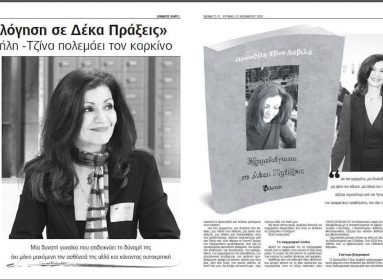





















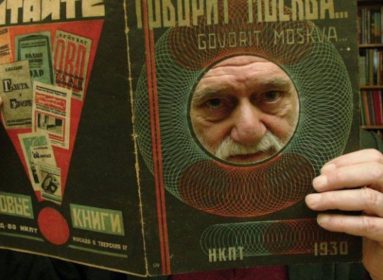










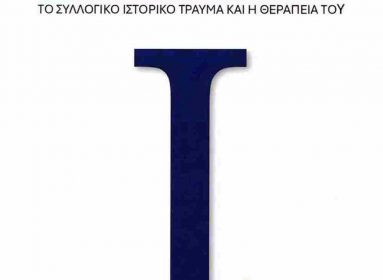
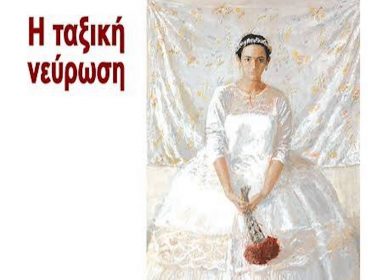

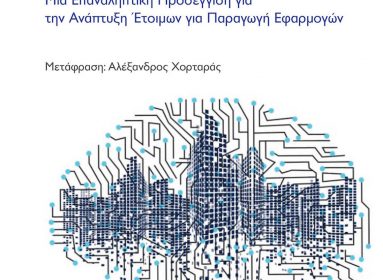






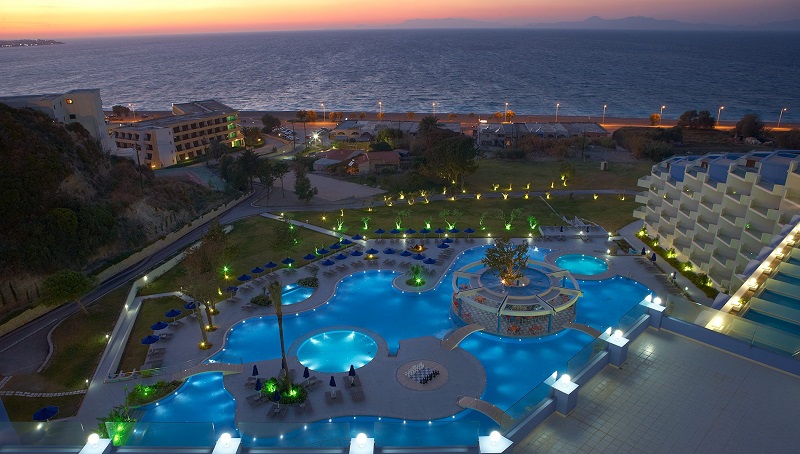



 Το σκίτσο είναι του Βαγγέλη Παυλίδη
Το σκίτσο είναι του Βαγγέλη Παυλίδη

 Στηρίξτε-Ενισχύστε την iΠόρτα με τη δική σας χορηγία…
Στηρίξτε-Ενισχύστε την iΠόρτα με τη δική σας χορηγία…